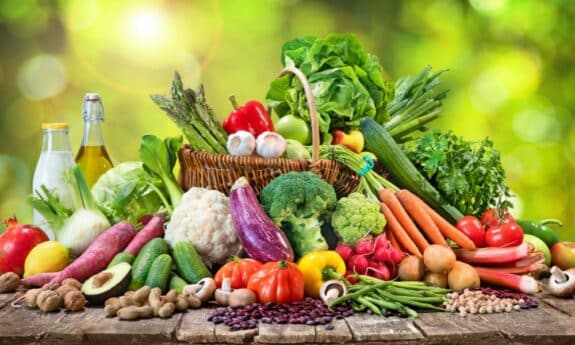Organic baby food has been around for a while, but it really took off around five years ago when squeezable pouches hit the market. Since that time, organic baby food has “exploded in popularity,” Happy Family organic baby food manufacturers told Washington Post. Not only are these foods convenient, they give health-conscious parents a sense of comfort; they believe they are giving their babies the best on the market – lower levels of pesticides and a higher nutritional value. But that extra piece of mind comes at a cost.
In a Wegman’s grocery store in Fairfax, a four-ounce jar of Gerber non-organic sweet potatoes costs 65 cents a jar. But for an organic jar version made by Earth’s Best, consumers can expect to pay 85 cents a jar for the exact same food. And for a 4.2 ounce convenience pack of Earth’s Best sweet potatoes and apple puree, consumers are paying $1.49 per pouch.
Still, even at these added costs, Mintel says that four out of 10 mothers are willing to pay the extra cost of organics. Mothers like Jessica Wolff, a mother from Leesburg who works for a nonprofit medical society. She says that, even though she and her husband still eat conventional foods, she feeds her 1-year-old daughter nothing but organic foods. She’s hoping to avoid pesticides and hormones in her daughter’s diet.
“Across the board, everything for the baby has to be pure and good and better,” she told Washington Post. “I’m a little neurotic about it.”
Jessica had started out pureeing her daughter’s food at home, but while pureeing some free-range chicken, the baby food processor started to smoke. That was when she started buying pre-packaged organics like Ella’s, Plum Organics and Happy Family. She says she also feeds her daughter some organic yogurt, finger foods and fresh produce, like avocado. Jessica says that her daughter’s willingness to try such a wide variety of food make her proud.
“She has a really advanced palate, and I hope it sticks,” Wolff said. “It looks like we have a food snob living in the house.”
But is that price really justified? Is that peace of mind being given to parents under false pretenses? Some experts seem to believe so. Paul Weiner, a Bethseda pediatrician, is one of the many experts that believe parents are being wooed into buying organic baby food by unsubstantiated claims of better, healthier food.
“There’s no definitive data that it’s better,” he told Washington Post.
Weiner says he’s been receiving questions about organic baby food and arsenic in rice ever since Consumer Reports found “worrisome levels” of the element in a variety of products last fall. Infant rice cereal was just one of the many products included in that report. Consumer Report’s testing prompted the Food and Drug Administration to test about 200 food samples. Their test provided similar results, but the FDA did not recommend that consumers (babies included) change their rice-eating habits.
“We are not aware of any acute health risks linked with the consumption of infant rice in the U.S.,” the agency had said in its message to consumers last fall.
Weiner agrees, to an extent. But he recommends that parents rotate rice cereal with other infant cereals, like barley and oats, that way, children won’t consume too much of it.
“If an adult were to eat that amount of arsenic, it wouldn’t necessarily be a problem, but for a baby’s small body size, it adds up, he says.”
But not all experts are willing to believe that any of the potential exposure is a risk for young children. In fact, some say that parents should refocus their attention on the variety and process through which they’re feeding their children rather than whether they’re feeding their babies organic or conventionally grown foods.
“Having a positive eating experience with a variety of foods, testing for allergic reactions, and advancing textures are the most important parts of early feeding, not whether they’re getting organic or not,” said Tiffani Hays, the director of pediatric nutrition at the Johns Hopkins Children Center.
Though additives in food, like dyes and preservatives, have been tested and found to be supposedly safe, there are still parents and experts that worry about the negative effects of these additives. Cancer, gastrointestinal problems, behavioral issues like ADHD, immune diseases, and more have all been blamed on food additives, Hays said. She added, however, that there’s no evidence to support these claims.
“These only remain concerns in theory, not something that has been documented and supported by controlled research studies or anything like that,” she said. “The variety of foods and nutrients that babies take in will have a much larger impact on their health than whether they’re fed organic or not. Vitamins, minerals, and fiber have much better research and documented health benefits than does choosing organic.”
One study, conducted by Stanford University physician, Crystal Smith-Spangler and her co-authors, seems to support Hays’s position. In their study, no consistent nutritional differences were found between organics and conventionally grown baby foods either. They did note that there was a 30 percent lower risk of pesticide contamination in organics. However, the authors also said it was rare for either to exceed pesticide limits set out by the Environmental Protection Agency.
“Despite the widespread perception that organically produced foods are more nutritious than conventional alternatives, we did not find robust evidence supporting this perception,” the Stanford University physicians said in their study.
Another study, published in the Annals of Internal Medicine in 2012 took a look at hundreds of previous studies on organic foods; they even included studies that had analyzed the benefits (or lack thereof) of organic food consumption in older children and pregnant women. In that study, authors said they had found no strong evidence to support the idea that organic food had any added health benefits over conventionally grown foods.
Yet, despite all of this information, the organic baby food industry is booming. Shazi Visram, the founder and chief executive of Happy Family, says that the company, which started back in 2006, went from $115,000 in sales to $35 million by 2011. Their most popular food? The spinach, mango and pear convenience pouch, which contains 3.5 ounces of food. She says that parents are ecstatic about the idea of getting their babies to eat spinach, “one of the holy-grail, top-10 foods you want your baby to develop a taste for.”
Parents are looking for ways to get more vegetables into their children,” Visram told Washington Post. “Our philosophy is: You do all you can, and it’s about repetition.”
And, despite the finding of their study, it would seem that Smith-Spangler recognizes just how difficult choosing the right foods for children can be.
“The purpose of the study was not to tell people what to buy and eat, but to give people the information about the difference,” Smith-Spangler said. “I can see smart, rational people making different decisions. It’s a complex decision.”
When it comes to food choices, parents have to make the decision they’re best able to live with. While there may be no substantial evidence against the health concerns of exposure to dyes, preservatives and pesticides, I know I tend to feel much better when I avoid these additives altogether. So if feeding their baby organics helps parents feel better about the food choices they’re making for their children, I don’t see any harm in it if they’re willing to pay the extra costs.
Related Articles:







